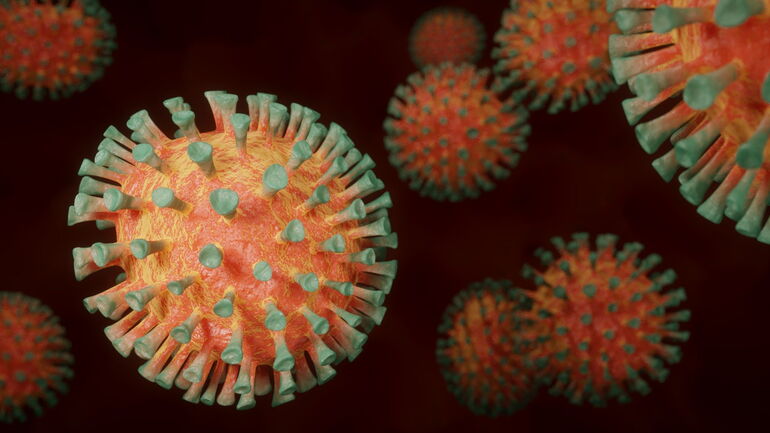Processing Your Payment
Please do not leave this page until complete. This can take a few moments.
-
News
-
Editions
-
- Lists
-
Viewpoints
-
HBJ Events
-
Event Info
- 2024 Economic Outlook Webinar Presented by: NBT Bank
- Best Places to Work in Connecticut 2024
- Top 25 Women In Business Awards 2024
- Connecticut's Family Business Awards 2024
- What's Your Story? A Small Business Giveaway 2024 Presented By: Torrington Savings Bank
- 40 Under Forty Awards 2024
- C-Suite and Lifetime Achievement Awards 2024
- Connecticut's Health Care Heroes Awards 2024
-
-
Business Calendar
-
Custom Content
- News
-
Editions
View Digital Editions
Biweekly Issues
- April 15, 2024
- April 1, 2024
- March 18, 2024
- March 4, 2024
- February 19, 2024
- February 5, 2024
- January 22, 2024
- January 8, 2024
- Dec. 11, 2023
- + More
Special Editions
- Lists
- Viewpoints
-
HBJ Events
Event Info
- View all Events
- 2024 Economic Outlook Webinar Presented by: NBT Bank
- Best Places to Work in Connecticut 2024
- Top 25 Women In Business Awards 2024
- Connecticut's Family Business Awards 2024
- What's Your Story? A Small Business Giveaway 2024 Presented By: Torrington Savings Bank
- 40 Under Forty Awards 2024
- C-Suite and Lifetime Achievement Awards 2024
- Connecticut's Health Care Heroes Awards 2024
Award Honorees
- Business Calendar
- Custom Content
Shelton biotech talking with Asian firm on COVID drug; NH company gets $1.3M to advance Alzheimer’s memory app
 IMAGE | Pixabay.com
IMAGE | Pixabay.com
Antiviral developer NanoViricides Inc. said it has inked a confidential disclosure agreement with a “leading pharmaceutical company” in Asia to explore collaborating on the Shelton company’s proposed COVID-19 treatment.
NanoViricides, which says it has already identified drug candidates that are active against multiple coronaviruses in cell studies, announced Monday that it is also in “advanced discussions” with at least two sites that have the capability to test its drug against SARS-CoV-2, the virus that causes COVID-19. The animal studies will be used to seek FDA approval for human studies of the drug.
The drugmaker did not disclose the names of those sites or the Asian company. But it said the company with which it executed the CDA has experience in developing new technology platform-based drug candidates and a marketing and R&D presence in multiple countries in Asia.
The CDA allows the two companies to discuss information that has not been publicly disclosed about NanoViricides’ coronavirus drug development. NanoViricides said the “exploratory” discussions may or may not lead to a deal.
NanoViricides was one of the first New Haven-area bioscience firms to pivot its attention to COVID-19 in February. Since then, many others have announced plans to work on new treatments or repurpose existing drugs to help combat the global pandemic.
The company’s so-called nanoviricides use tiny particles that can directly attack and destroy a virus. CEO Anil R. Diwan has likened the drug platform to a Venus fly trap for viruses. Since the viral load remains high even in patients with late-stage COVID-19, minimizing the viral load by destroying the virus could effectively control the disease, NanoViricides said.
Before the COVID-19 pandemic, NanoViricides had been working to advance an anti-shingles drug into human testing. The company’s drug pipeline also includes possible treatments for various other viral diseases such as oral and gential herpes, H1N1 swine flu, HIV and Ebola.
* * *
A New Haven company has been granted up to $1.3 million from a national Alzheimer’s disease accelerator to advance its work developing a mobile app that can help detect early memory loss.
Cogstate Ltd., which is headquartered at 195 Church St. and specializes in computerized testing of brain function, will use the funding to adapt its well-known International Shopping List Test (ISLT) for smartphones and tablets.
Cogstate developed the test, which uses a real-world scenario of trying to remember a series of grocery items, to track memory changes over time.
Memory decline is one of the earliest signs of Alzheimer’s disease, but currently memory testing can only be conducted in person by a trained neuropsychologist, Cogstate said.
The company’s app aims to provide “early and accurate testing of memory decline for anyone, regardless of their access to specialized medical clinics,” Cogstate CEO Brad O’Connor said in a statement.
The research project was one of five awarded through the Alzheimer’s Drug Discovery Foundation’s (ADDF) Diagnostics Accelerator, whose backers include Bill Gates, Amazon CEO Jeff Bezos, the Dolby family and other prominent philanthropists.
The two-year-old accelerator seeks to speed up the development of biomarkers for early detection of Alzheimer’s and other dementias, which afflict roughly 50 million people worldwide.
Cogstate’s award was the first for digital biomarker research under the program.
“An easy to use, accurate and accessible test of memory is a critical component in the early detection of Alzheimer’s disease and other dementias,” said Howard Fillit, MD, ADDF’s director and chief scientific officer. “That’s why we are enthusiastic about Cogstate’s program to automate such a well-validated assessment for use by individuals at home.”
ADDF describes itself as the only public charity solely focused on funding the development of drugs for Alzheimer’s. It has granted more than $150 million to over 626 programs in 19 countries since 1998.
* * *
European regulators have signaled likely approval for Alexion Pharmaceuticals’ plan to market its newest drug, Ultomiris, to patients in the European Union suffering from an ultra-rare life-threatening blood disease.
Alexion said last week that the Committee for Medicinal Products for Human Use (CHMP) has issued a positive opinion on its application to market the drug for patients with atypical hemolytic uremic syndrome (aHUS).
The FDA first approved Ultomiris, Alexion’s successor to its blockbuster drug Soliris, to treat the rare blood disease PNH (paroxysmal nocturnal hemoglobinuria) in December 2018.
The drug earned a second regulatory approval to treat aHUS in the U.S. last October. The disease is marked by blood clots and damage to the walls of small blood vessels, leading to progressive organ damage, usually affecting the kidneys.
Alexion expects final regulatory approval by the European Commission in June.
Alexion R&D head John Orloff, MD, said Ultomiris, if approved, would be “the first and only long-acting c5 inhibitor for the treatment of people with aHUS” in Europe.
The CHMP’s decision was based on clinical trials in which 61 percent of adults and 94 percent of children responded completely to treatment. A complete response included normalized platelet counts, lower red blood cell destruction and improved kidney function.
Contact Natalie Missakian at news@newhavenbiz.com.

2022 Giving Guide
This special edition informs and connects businesses with nonprofit organizations that are aligned with what they care about. Each nonprofit profile provides a crisp snapshot of the organization’s mission, goals, area of service, giving and volunteer opportunities and board leadership.
Learn more
Subscribe
Hartford Business Journal provides the top coverage of news, trends, data, politics and personalities of the area’s business community. Get the news and information you need from the award-winning writers at HBJ. Don’t miss out - subscribe today.
Subscribe
2024 Book of Lists
Delivering Vital Marketplace Content and Context to Senior Decision Makers Throughout Greater Hartford and the State ... All Year Long!
Read Here-
2022 Giving Guide
This special edition informs and connects businesses with nonprofit organizations that are aligned with what they care about. Each nonprofit profile provides a crisp snapshot of the organization’s mission, goals, area of service, giving and volunteer opportunities and board leadership.
-
Subscribe
Hartford Business Journal provides the top coverage of news, trends, data, politics and personalities of the area’s business community. Get the news and information you need from the award-winning writers at HBJ. Don’t miss out - subscribe today.
-
2024 Book of Lists
Delivering Vital Marketplace Content and Context to Senior Decision Makers Throughout Greater Hartford and the State ... All Year Long!
ABOUT
ADVERTISE
NEW ENGLAND BUSINESS MEDIA SITES
No articles left
Get access now
In order to use this feature, we need some information from you. You can also login or register for a free account.
By clicking submit you are agreeing to our cookie usage and Privacy Policy
Already have an account? Login
Already have an account? Login
Want to create an account? Register
Get access now
In order to use this feature, we need some information from you. You can also login or register for a free account.
By clicking submit you are agreeing to our cookie usage and Privacy Policy
Already have an account? Login
Already have an account? Login
Want to create an account? Register






0 Comments